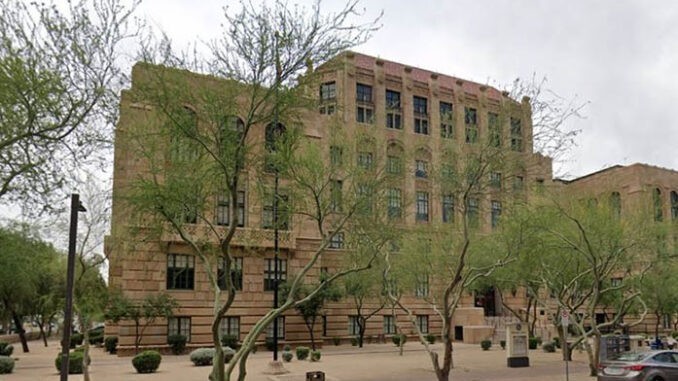
By Abraham H. Miller
The gunfight at the O.K. Corral in 1881 became the most infamous story of the Wild West. Move over, Wyatt Earp! These days another, more momentous shootout is taking place north of Tombstone in a Phoenix courthouse.
The decision will determine whether academic freedom or blasphemy laws are the guiding norms for what goes on in our colleges and universities.
The shootout between the Earps and the Clanton-McLaury gang lasted about 30 seconds. The current legal shootout began months ago, and like all legal processes has dragged on.
Professor Nicholas Damask at Scottsdale Community College posed three quiz questions about how jihadists interpret Islam as a justification for terrorism.
One Muslim student found the questions offensive and posted his opposition on social media.
From near and far, Muslims made their disfavor known, with some threatening Professor Damask and his family.
The irony was missed. In expressing their objection to the statement that Islamists interpreted Islam as a justification for violence, they themselves threatened violence.
That the questions did not imply that Islam condoned violence but only that it was used as justification for violence was also lost on them, as was the historical reality that segments within all religions have found justification for violence in their sacred texts.
The immediate response from Professor Damask’s administrative superiors was to offer him up for sacrifice and send him to a yet-to-be-named imam for reeducation as to the meaning of Islam.
To call their response pusillanimous and unworthy of anyone entrusted with the values of higher education in a democratic society would not begin to cover it.
But at the county board level some real intelligence came to fruition, recognizing that Professor Damask had both his academic freedom and administrative due process rights trampled in a rush to placate some vocal members of an offended minority.
That should have been the end of the tempest in a teapot.
But CAIR, the Council for American Islamic Relations, found within Professor Damask’s questions a unique if not absurd interpretation of the First Amendment. That by asking those questions, Professor Damask was establishing other religions at the expense of Islam.
As anyone who has taken an introductory course in mass movements knows, it is common to view Christianity as a mass movement and even to compare it with both authoritarian and totalitarian movements. In fact, the idea is found in Eric Hoffer’s classic on mass movements, The True Believer.
So, following the logic of this being a violation of the First Amendment’s Establishment Clause, should professors stop making those comparisons because they might upset some Christians and are establishing other religions over Christianity?
The question answers itself.
This is a slippery slope. If we go down it, we will be unable to teach about the Reformation without some challenge that we are establishing Protestantism over Catholicism, or will it be Catholicism over Protestantism?
Will we be able to teach about the horrors of the Spanish Inquisition without some offended Catholics arguing that we are establishing Islam and Judaism over Christianity?
Maybe we will have clerics stationed in the back of classrooms to see if the “true” meaning of their religion is being addressed and other religions are not established over it.
The ability to criticize religion has never meant establishing primacy of some over others. If religion cannot be criticized, it cannot be extolled. Consequently, the Middle East studies courses with their pro-Islamic interpretations would come under the same scrutiny. They then could not be taught as they are.
In the end, if CAIR wins, we are all losers. Even the Middle East studies courses that CAIR supports will lose.
In a free and open democracy, all institutions are subject to praise and criticism. And the free marketplace of ideas is where these issues should be contested.
______________________________________________________
Abraham H. Miller is an emeritus professor of political science, University of Cincinnati, and a distinguished fellow with the Haym Salomon Center. Professor Nicholas Damask is a former student of his.
